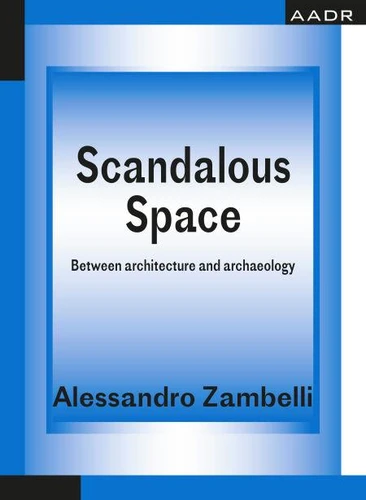Scandalous Space. Between architecture and archaeology
Par :Formats :
Disponible dans votre compte client Decitre ou Furet du Nord dès validation de votre commande. Le format ePub est :
- Compatible avec une lecture sur My Vivlio (smartphone, tablette, ordinateur)
- Compatible avec une lecture sur liseuses Vivlio
- Pour les liseuses autres que Vivlio, vous devez utiliser le logiciel Adobe Digital Edition. Non compatible avec la lecture sur les liseuses Kindle, Remarkable et Sony
 , qui est-ce ?
, qui est-ce ?Notre partenaire de plateforme de lecture numérique où vous retrouverez l'ensemble de vos ebooks gratuitement
Pour en savoir plus sur nos ebooks, consultez notre aide en ligne ici
- Nombre de pages258
- FormatePub
- ISBN978-3-88778-909-1
- EAN9783887789091
- Date de parution01/10/2019
- Protection num.pas de protection
- Taille6 Mo
- Infos supplémentairesepub
- ÉditeurAADR – Art Architecture Design
Résumé
If architecture is a design-centred discipline which proceeds by suggesting propositional constructions then, Zambelli argues, archaeology also designs, but in the form of reconstructions. He proposes that whilst practitioners of architecture and archaeology generally purport to practice in future-facing and past-facing-modes respectively, elements of these disciplines also resemble one another. Zambelli speculates that whilst some of these resemblances have remained explicit and revealed, others have become occluded with time, but that all such resemblances share homological similarities of interconnected disciplinary origin making available in the scandalous space between them a logically underpinned, visually analogical form of practice.
If architecture is a design-centred discipline which proceeds by suggesting propositional constructions then, Zambelli argues, archaeology also designs, but in the form of reconstructions. He proposes that whilst practitioners of architecture and archaeology generally purport to practice in future-facing and past-facing-modes respectively, elements of these disciplines also resemble one another. Zambelli speculates that whilst some of these resemblances have remained explicit and revealed, others have become occluded with time, but that all such resemblances share homological similarities of interconnected disciplinary origin making available in the scandalous space between them a logically underpinned, visually analogical form of practice.



